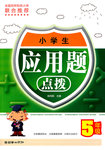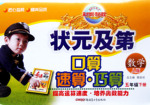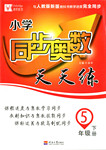题目内容
| 完形填空。 | ||||
| We live in the "computer age (时代)". When people talk about computers, they often say that computers can help people do ________ (1) work. It is very ________ (2) to work on the computer. Is ________ (3) a computer in your home? What do you usually ________ (4) on the computer? Now a computer can do a lot of work very ________ (5). Many students like playing computer games. They think computer games are ________ (6). Some students like music very much, so they often download music________ (7) the Internet. Some students use computers for _______ (8) their school work. They get information about English, history, maths and other subjects. Some students send emails________ (9) their friends. In some schools, teachers use computers to teach, then students can ________ (10) their homework on the computer. | ||||
|
| 1-5 BABAB 6-10 ACACA |

练习册系列答案
 应用题点拨系列答案
应用题点拨系列答案 状元及第系列答案
状元及第系列答案 同步奥数系列答案
同步奥数系列答案
相关题目
| 完形填空。 | |||
| We __1__ English, not learning about English. A student can __2__ all about English, but he __3__ not be able to speak English. There is a __4__ between "learning English" and "learning about English". If you __5__ to learn it well, please __6__ the following things. __7__ , learn the expressions (表达) by heart , learn the __8__ sentence, not single words. __9__ don't __10__ about mistakes. It is important __11__ a good habit from the very first lesson. Just try to say __12__ you want to say and don't care __13__ people laugh at you. Keep on __14__ and you'll make __15__ mistakes. | |||
| ( ) 1. A. learning ( ) 2. A. know ( ) 3. A. must ( ) 4. A. different ( ) 5. A. think ( ) 6. A. remember ( ) 7. A. In the end ( ) 8. A. all ( ) 9. A. at any time ( ) 10. A. carry ( ) 11. A. to search ( ) 12. A. where ( ) 13. A. that ( ) 14. A. standing ( ) 15. A. less and less |
B. were learning B. tell B. may B differences B. want B. understand B. Most of all B. this B. all the time B. worry B. to repeat B. why B. if B. trying B. more or less |
C. are learning C. say C. dare C difference C. try C. read C. First of all C. both C. at the same time C. hurry C. to start C. whom C. how C. putting C. fewer and fewer |
D. learn D. sing D. can D. differently D. can D. write D. write D. whole D. at times D. stop D. to develop D. what D. what D. teaching D. write |
| 完形填空。 | ||||
| We are going to take a test today. It will show if we are 1 to get in an honours class next year. But, I don't think it is 2 for me. It is the maths part-my favourite. We take the test by computer. There 3 52 questions for us to do in one hour. The boy behind me 4 nervous. The girl to my left was nervous, 5 . But, 6 I began answering the questions, I saw the whole thing 7 a game. I tried to 8 easy ways to do the maths problems. At the end of the test, my score was 307. But what does it mean? I have no idea. I asked my friend John. He got 227. When he knew my score, he said, "Oh my God. You're a genius!" So, I asked 9 people, and got the same answers. Finally, I walked up to Lauren. "David! How did you do on the MAP test?" I answered, "If I 10 you, will you kill me?"
|
| 完形填空。 | |||
| We know that trees are useful in our everyday life. They __1__ us many things, such as wood, oxygen, rubber, medicines and many other things. They can __2__ tell us a lot about our climate. The following are the reasons. If'you, __3__ a tree, you can see that it has many rings (年轮). Most trees grow one new ring __4__ year. Because of this reason, we know __5__ a tree is. A tree over a hundred years old means that it has more than a hundred __6__ . When the climate is dry or very cold, the trees do not grow very much and their rings are usually __7__ . When it is wet and warm, the rings are much thicker. If the rings are suddenly very thin or suddenly very thick, this means that the__8__ changed suddenly. If we Iook at the rings on this tree, we can learn about the __9__ for a hundred years. We can see__10__ 0ur climate is changing today. | |||
| ( ) 1. A. tell ( ) 2. A. not ( ) 3. A. cut down ( ) 4. A. many ( ) 5. A. how big ( ) 6. A. trees ( ) 7. A. big ( ) 8. A. climate ( ) 9. A. people ( ) 10. A. how |
B. ask B. too B. climb up B. every B. how long B. leaves B. thin B. trees B. things B. why |
C. give C. also/ C. walk past C. the first C. how old C. rings C. small C. things C. climate C. when | |
| 完形填空。 |
| We 1 three new students in our class. 2 names are Jim, Lucy and Lily. Jim's 3 England. He speaks English. Lucy and Lily are twins. They come from 4 . They 5 English, too. We are in 6 same class. We like our school. We go to school five days a week. We stay at home 7 Saturdays and Sundays. They teach us 8 and we teach 9 Chinese. We are very 10 to each other. |
| ( ) 1. A. are ( ) 2. A. Their ( ) 3. A. come ( ) 4. A. American ( ) 5. A. speaks ( ) 6. A. a ( ) 7. A. in ( ) 8. A. Chinese ( ) 9. A. they ( ) 10. A. friendly |
B. have B. They B. from B. China B. say B. the B. at B. Japanese B. theirs B. friend |
C. don't have C. Theirs C. of C. America C. says C. an C. on C. English C. their C. friendes |
D. they D. They're D. for D. English D. speak D. / D. from D. French D. them D. friends |
| 完形填空。 | |||
| We 16 four new students in our class. One is Tom. He 17 England. He speaks 18. John's 19 the United States. He speaks English, 20.And Michiko 21 a Japanese. She lives 22 Tokyo. But she is in Beijing 23 her parents. The last one is Peter. He's from 24 . He speaks English and French. We are in 25 same class. We are good friends. | |||
| ( )1. A. have ( )2. A. come from ( )3. A. Chinese ( )4. A. at ( )5. A. too ( )6. A. am ( )7. A. at ( )8. A. and ( )9. A. Australia ( )10. A. a |
B. has B. come B. Japanese B. from B. also B. is B. to B. or B. Canada B. an |
C. don't have C. is from C. England C. with C. either C. are C. in C. to C. Japan C. the |
D. there are D. from D. English D. of D. or D. be D. / D. with D. America D./ |
